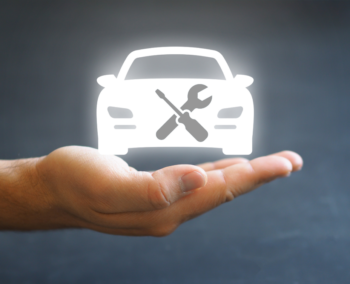Our customers have a range of questions for us when they’re in the market for a vehicle. We’ve put together a list of the 10 most common car finance questions that our team is asked. Here are the answers…
1. What are the different types of car finance, and which is best for me?

There are many ways to finance your new car. Most car loans are secured rather than unsecured. Hippo Motor Finance is a one-stop shop for all your car needs. We have built relationships with a range of lenders so that we can find the right finance for a variety of circumstances. With us, you can choose a new car and find the correct finance opportunity all in one place.
Some of the most common car finance types include:
Hire Purchase: A type of secured car finance loan. You may put down a deposit if you wish, and then you will pay a fixed monthly balance which includes interest, over a set term. The agreement period is determined based on your individual circumstance and whether you have put a deposit down. It usually varies from one to five years.
Until you’ve settled the full amount, the finance company is the legal owner of the car. And once you’ve repaid the full amount, you will become the legal owner.
Personal Contract Purchase (PCP): This is one of the most common forms of car finance. The driver opts to pay a deposit followed by a series of monthly installments to cover the car’s depreciation over the term plus interest. Covering only the depreciation costs means PCP deals are usually lower than other types of finance.
PCP is great for people who want the option to own their car at the end of their agreement. This involves paying a lump sum known as a balloon payment, so that you can own the car outright. If you don’t want to own the car at the end of your agreement you can part-exchange the car for a new one, or just simply return it.
Personal Contract Hire (PCH): You will recognise this for its more common term, leasing. And with leasing, you will never own the car. PCH is essentially a long-term car rental. You choose your car, set a mileage, and agree to a payment term. You then make regular monthly payments until the end of the agreement term.
PCH allows you to add servicing and maintenance to the package. This allows you to drive with peace of mind, knowing that if anything happened to the car, you’d be covered.
2. Should I close my credit card before applying for car finance?

When you apply for car finance, your credit score will play an important role in determining how much you can borrow and at what rate.
Part of calculating your credit score is having a credit check carried out. There are various agencies that you can use to produce your individual credit rating.
Now, as your credit card will play a key role in deciding your credit score, it can indeed influence your car finance application.
Your credit score is the number lenders look at to assess the likelihood of you paying credit back. It’s made up from your credit history and shows the level of risk you pose as a borrower.
If you’ve managed your finances well and payments on time, your score will be higher. And a higher score means a better chance of being accepted for car finance at the most competitive rates.
Your credit score helps to predict your future behaviour so keeping your credit card open, even if you are not using it, can help to prove your reliability and positively impact your credit score.
3. Does car finance affect a mortgage?

Buying a house and buying a car are both big expenses. So, does a car loan affect a mortgage and your chances of being approved for finance? The simple answer is yes.
If you have car finance when you take out a mortgage, this will be considered by your mortgage provider. Your credit history will show a lender if you have a huge amount left to pay on your car loan and whether you’ve been making these payments on time.
Lenders will determine your level of reliability based on your payment habits. So, having a car loan that you’ve been paying off regularly will show that you’re responsible. However, if you have a large amount left to pay off, this could lower the mortgage amount you’re offered.
4. Will I qualify for car finance if I’m self-employed?

If you are self-employed, there’s no reason why you shouldn’t qualify for car finance. Provided that you have planned properly and have all the correct documents to show.
There are several ways you can finance a car. Consider the following factors: price and age of the car, the loan term, if you are going to put a deposit down, and your own financial circumstances.
Depending on what you’re going to use the car for, leasing is a popular option for those who are self-employed. Also, depending on the status of your business, you can opt for a business contract hire deal which can often mean reduced net cost of monthly lease payments thanks to tax incentives.
When lenders are deciding whether to approve your application for car finance, they value what your ability is to pay them back. So, it’s important for you to prove to lenders that you will be able to make the monthly payments.
Based on the type of self-employment you have; whether you’re a sole trader, or a registered company, there is a criteria to fulfil on your application. This includes employment and address history, proof of income, and having a good credit score can also boost your chances of being approved.
Read our article on Car Loan Eligibility for the Self-Employed: Will I Qualify? for more advice and information.
5. What paperwork do you need to prepare for car finance?

Preparation is key when you’re applying for car finance. You can help your application be as simple and straightforward by making sure that you have all the required paperwork at hand. There’s a checklist of documents that you will need to submit along the way, including proof of identity, address, income, your driving licence and other details for your application to be considered.
Read our speedy guide for the paperwork to prepare for car finance. The list is quick and useful, just like our Apply Now process.
6. Can you get car finance if you’re unemployed?

To successfully apply for car finance, you must show that you have a steady income. Therefore, applying whilst you’re unemployed heavily reduces your chances of being approved.
There are some very specific conditions under which you may be considered for car finance if you’re unemployed. This includes if you are using a nominated guarantor, or your previous employment history is good and you are only expected to be temporarily out of work, or if you receive any benefits that can help cover the payments. However, it should be noted that most lenders are likely to refuse your application if you are unemployed.
Remember, if you do get approved whilst being unemployed, because you pose a higher risk for lenders and have fewer options, the rate and terms of the car finance offered to you are prone to be unfavourable.
The best advice for motorists who are unemployed is to wait until you are in a better financial position to apply for car finance on more advantageous terms.
7. How does car finance work?

A car is a large purchase, and the most common way for people to get the right vehicle for them is to do so on finance. All the different types of car finance allow you to spread the cost of the car you want over a set period. Based on your budget, you can choose affordable monthly payments, which include interest on the loan. Car finance is an ideal way to get a new or used vehicle that meets your requirements if you don’t have the full amount available to buy the car outright.
When you use our Apply Now feature, we work with a range of lenders to help determine your approval which includes how much you could borrow, and the terms for your loan agreement. Getting approved relies upon several factors such as your credit history, your current income, and, of course, the type of car you would like to buy or lease.
8. Can I get car finance with bad or poor credit?

Yes, we specialise in offering car finance to applicants with all credit backgrounds. We understand that credit scores come in all shapes and sizes. So, even if you’ve been refused elsewhere, we consider each individual application to find the right loan terms for you.
Whether you’ve faced bankruptcy, had a CCJ, an IVA, or any other past arrears, you may have a bad or poor credit score, but we will still try our best to help you. Several of our lenders are specialists in diverse credit histories so it’s worth completing an application to see how what you could potentially afford.
Read our article on Can I get a car on finance with an IVA, CCJ or bad credit? for more advice and information.
9. Is there a preferred type of car finance?

With numerous car finance options available, you should choose an agreement that is best suited to your requirements and circumstances.
As with all finance offers, there are a few things to consider. Ask yourself what is important to you: what type of car do you need – family, city etc – do you want to own the car or be able to change it every few years? And what’s your monthly payment budget? These are just some of the questions you should answer before deciding on a vehicle and comparing the different types of car finance.
As the leading broker, Hippo Motor Finance will work with a range of lenders to find the best deal for each customer.
10. Can I get car finance with no deposit?

Absolutely, yes you can get car finance even if you don’t have a deposit to put down. Unlike other finance agreements, car agreements don’t need you to have a lump sum ready in order to get approved for a loan. We offer both part-exchange and zero-deposit deals on a huge range of cars. You will have to go through the same application process and lenders will check your individual situation to then offer you the best deal on the market.
In some cases, you may be required to pay a vehicle reservation or admin fee upfront. But this is usually an affordable amount. In general, finding a car on finance with zero deposit isn’t difficult and you can get started here.

Is it better to part-exchange a car or sell privately?

So, the time has come to part ways with your car. But whether you’re looking to replace it or upgrade…
DROs & DMPs: do they affect your ability to get car finance?



If you’re in a debt management plan (DMP) or have a debt relief order (DRO), you may be wondering whether…
I’m not on the electoral roll: will I get car finance?



If you’re not on the electoral roll, you might be surprised to hear it could affect whether or not you’re…














